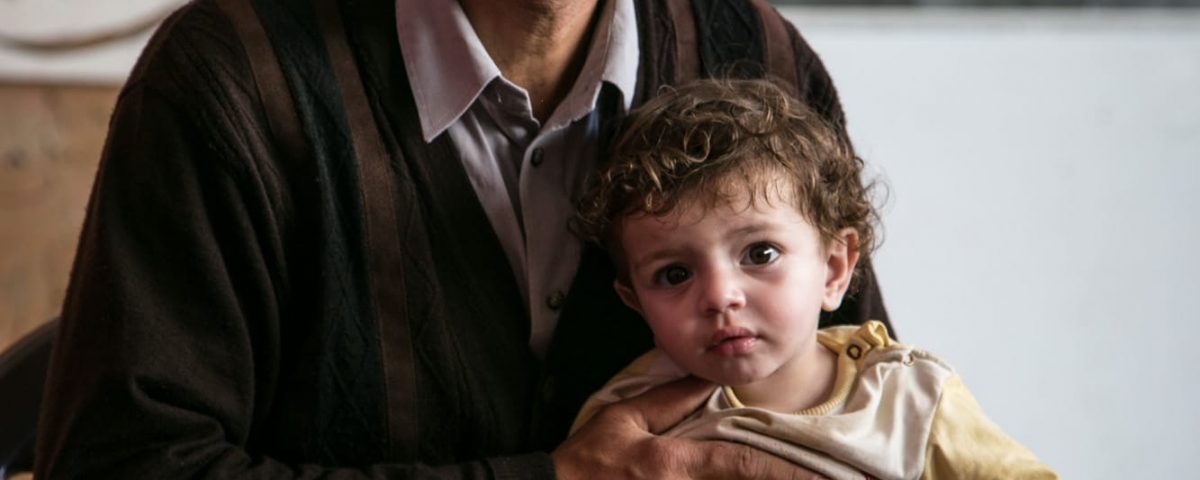- Mediterranean Hope - Federazione delle chiese evangeliche in Italia
- mh@fcei.it
“50,000 visas to get people out of Libya,” the Mediterranean Hope coordinator told TPI
TPI met with Paolo Naso, coordinator of Mediterranean Hope, the migration project promoted by the Italian Protestant Churches
(Valerio Nicolosi, via TPI)
More than a month has passed since Malta authorised the disembarkation of 49 people from the NGO Sea Watch and Sea Eye ships, after lengthy negotiations between the Member States of the European Union. Germany, France, Portugal, Ireland, Romania, Luxembourg, the Netherlands and Italy agreed to accept not only the 49 people on board, but also another 250 rescued by the Maltese Coast Guard in the early days of 2019. The Italian Government arrived at this agreement after a long internal negotiation between the Interior Minister who said, “I don’t know anything about it, I have not authorised anyone” and the President of the Council who instead negotiated with Brussels to start the process of disembarkation and reception. In the end, the agreement was reached also thanks to the Federation of Protestant Churches which offered to take in those who would arrive in Italy. We met with Paolo Naso, coordinator of Mediterranean Hope, the migration project promoted by the Italian Protestant Churches.
Let’s start from the beginning: how did the negotiations with the government go? Did you find the door open when you showed your willingness to receive the refugees?
In the first days of January, during that absurd stand-off, we contacted Emanuela Del Re, Vice Minister for Foreign Affairs with the delegation to International Cooperation. She has always been willing to talk to us. We made an offer, we said that our structures and resources were available to host the people arriving in Italy. But then we didn’t hear anything else, until Conte’s statement a few days later.
What happened after the landing? Did you receive news about these people?
No, we didn’t hear anything, at least not from the Italian government. We know for sure that some of the people who landed went to Luxembourg, which means some other countries are starting to get involved. They are certainly not at sea or in Libya and this is comforting, but we would like this situation to be resolved. We don’t even know how many will arrive in Italy, maybe 8, or maybe 10 or 12. The exact number has not been decided. There are only a group of countries who are “willing” and ready to welcome them.
Have you had contact with the Maltese authorities?
Yes, we have had contact with them and we know that they are in a camp similar to those in Italy. Let’s say that it is not the best situation in the world, but at least they’re not in an emergency situation. We are waiting for this long stand-off between the European countries to end and for Italy to take some action.
What are the next steps for you, instead?
We will continue to work on the humanitarian corridors, we want to speed up the visa procedures for the second contingent. We have reached a total of 1,600 arrivals, with another 400 left to go, and the project expires in December 2019. We are confident that this project will be renewed and that other humanitarian visas will be made available.
Do you think this model can be replicated at a EU level?
I believe we should involve all countries who are willing and who are convinced that this is the right formula. I say “willing” because as long as there is the right of veto in the European Council, there will always be a country that will use it. I am thinking of Orbàn’s Hungary, but there are also others. I believe positive responses can come from Germany and that Italy, Spain, France and Belgium will continue with the project, which is the only one that guarantees safety to everyone, to all those people who arrive and the countries that accept them.
Your reception work has given you the opportunity to hear the stories of the people who have passed through Libya. How do you think this situation can be resolved?
By building a European humanitarian corridor that will be able to save the 50,000 people who are in Libya. Rescue at sea remains a moral duty, as well as an obligation imposed by international law. The NGOs are doing an incredible job with their ships, but we must work together to build a legal flow that destroys the business of people smugglers. This would also allow a greater possibility to stabilise Libya and to make sure that in the future it is not a battlefield, where the refugee camps are a target, but a safe place for everyone, without anyone profiting from people.





